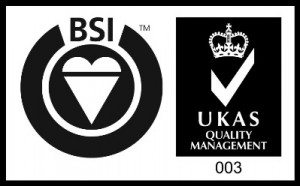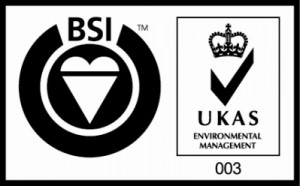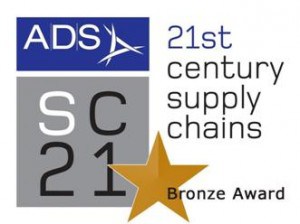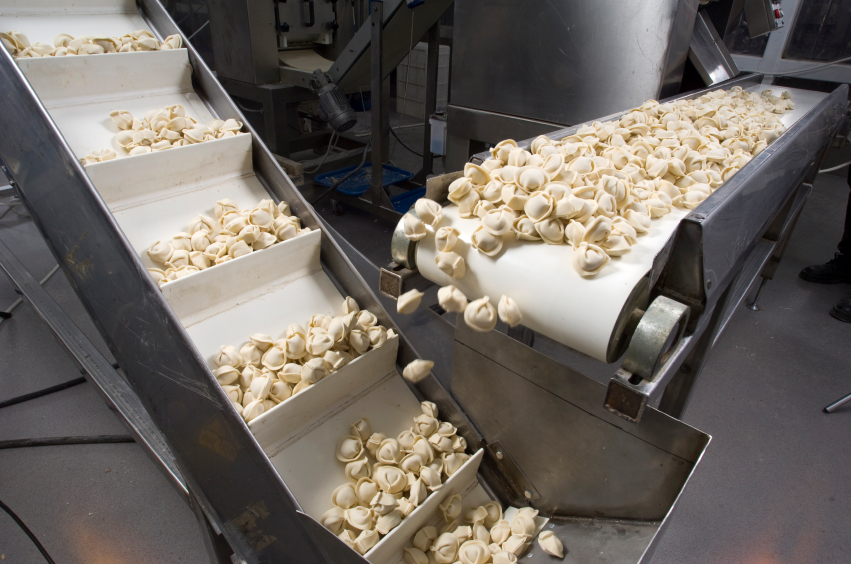Help Centre
Have a technical question or issue about gaskets and sealing? Unsure about chemical resistance, temperature, or pressure? Take a look at our help centre.
Contact Us
Need a price for a standard or bespoke part? Why not send us a quotation request.
Agricultural Gaskets
Gaskets for Agricultural Machinery
The choice of sealing materials for the assembly and manufacture of agricultural equipment is governed by many factors, including: resistance to weather, farm chemicals, and temperature fluctuations. The type of materials chosen are because of strength, longevity, ease of manufacture, resistance to rough handling, and price.
The Agriculture sector utilises gaskets and seals predominantly in oily, pressure sensitive applications, including high fuel and chemical based environments.
Sealing in the agricultural industry must face many challenges, including: the environment, weather, seasons, and the heavy use and long-term storage of equipment. Resistance to farm chemicals, such as fertilisers and weed killers, is critical; with some chemicals being more corrosive than others. Changes in chemicals over time can cause increase corrosion. For example the decomposition of fertiliser, producing ammonia, hydrogen sulphide, and chloride. Acidic conditions, such as caused by ammonium phosphate and ammonium hydrate, lead to the increased corrosion of metals and rubber parts. Sealing against many different environmental factors is paramount for a good quality, well designed, product.
We supply spacers and seals for discharge chutes and crop processing equipment, including flexible chute liners and food safe materials. We can also supply heavy duty reinforced rubbers, for skirting industrial machinery.
Corrosion Resistance
Farming machinery manufacturers can increase the lifetime of their products, by designing in the correct sealing. Agricultural machines are often painted, but paintwork can corrode over time leaving the metalwork underneath exposed to the elements. Sealing weak points, such as exist points, can significantly increase the longevity of the product. Specifying the right sealing, and in the right materials, leads to a better quality design, and can reduce the need for recalls and replacement parts.
Chemical Resistance
It is important that parts for agricultural machinery have the correct chemical resistence. Different ratios of plant nutrients, liquid fertilisers, and urea can all contribute to the decomposition of seals. For this reason it is important that sealing joints with the correct polymers (rubbers) are used, as this will significantly contribute to the life of agricultural equipment. Specific applications will require expert advice, or testing. More information about the chemical resistence of gasket materials, can be found in our chemical resistence charts.
Please contact us for more information.
Gaskets for Metalwork, Construction, and Architectural Design
We manufacture and supply flexible seals for construction and fabrication.
We have worked with architects and designers on many large scale fabrication projects, including the seals for Damien Hirst’s Formaldehyde Shark tanks, and the windows of the Media Centre at Lord’s Cricket Ground.

We have also supplied parts for:
• Stairways
• Balustrades
• Glass buildings
• Skyscrapers
• Roofing
• Window and door seals
• Roof-top swimming pools
• Sunken
• Swimming pools (including for swimming pool pump equipment)
Gaskets for the construction industry are typically one-off bespoke parts, or small batch runs. We can supply any number of parts, from one-off to large volumes.
Parts in construction are often used for buttering, mounting, or as environmental sealing.
Environmental Seals For Construction
Environmental seals are typically used to join other materials. such as wood, glass, and metalwork. The quality of these seals is critical to the longevity and quality of the construction, and the long-term look of the finished installation. If the seal fails this can lead to water ingress, mould growth, or rust. For example if a glass balustrade is fitted with a rubber protective washer, the rubber needs to remain in place, unaffected by outside factors. The rubber must not decay, dissolve, crack or become rigid. Also, the overall good performance of the rubber should remain for as long as possible to reduce maintenance and increase the longevity of the complete assembly. To do this, it must: resist temperature fluctuations, sunlight, salt, air pollutants, and chemicals (for instance, the glass will be cleaned with a cleaning fluid).
Seals For Swimming Pools and Surrounding Balustrades
Sealing around swimming pools has the added issue of chlorine, which whilst great for maintaining cleanliness generally wrecks havoc on seals and elastic materials. Silicone rubbers resist the chemical effects of chlorine but are very difficult to stick in place (as they resist adhesives). Maintenance of silicone in a swimming pool environment is also very difficult. EPDM rubber has excellent resistance to chlorine, is available in varying hardness, and is often more easy to maintain.
Pumping and filtration equipment needs to utilise the best polymers, to ensure longevity and performance of the seals. Again, EPDM has excellent resistance to chlorine and is the material we commonly supply in this situation. Viton rubber is used when stronger chlorines are present.
Sealing Between Surfaces Of Different Material
As outlined, in the construction industry sealing is often used between different materials (such as glass to glass, glass to metal, glass to wood). Each of these would require a diifferent seal, with a different adhesive. Gasket tapes and strips are commonly used, and can be supplied in any gasket material width, size, and quantity. Strips with an adhesive backing can meet many sealing requirements. Used predominantly to fill gaps and provide grip or resistance between different layers, the quality of the strip material is critical. The adhesive needs to be compatible with the material, and the rubber specificed to the environment.
We manufacture gaskets and seals for the aerospace and defence industries, such as for use in aeroplanes, submarines, frigates, tanks, military vehicles, helicopters, and naval vessels.
Aerospace & Defence Quality Standards
RAM Gaskets are a certified supplier into the aerospace and defence industry. We have over 40 years of experience of supplying into the aerospace and defence sector. We understand that within these industries conformity, certification and material and production quality must meet the highest possible standards.
Our vast knowledge of gasket materials, design and production, means that we can advise at the design stage if required. Not only are our office staff able to advise, but our team on the factory floor are specifically trained in making gaskets for the aerospace and defence sector. We can also offer technical expertise and advice for those making sub-assemblies to be supplied into these industries.
We offer complete traceability and certificate of conformity on all of our materials so you can be sure that gaskets are being produced from materials with the relevant batch and cure date. Our quality system even allows customers to control how their parts are manufactured.
Our comprehensive range of machinery enables us to produce the correct part by means of the most appropriate manufacturing technique. The aerospace and defence industries typically require strict tolerances to be met, and our CAD CAM machines produce computer aided designed gaskets with a 0.5mm tolerance.
We are certified to BSI ISO 9001 and BSI ISO 14001. We also hold the ADS SC21 Bronze award, and are fully able to meet the quality standards required to supply into the aerospace and defence industries. We are in possession of a registered UK NCAGE number and DUNS number. RAM also understands and fully engages with supplier management system requirements such as SABRe.
First Article Inspection Report
We offer F.A.I.R. (First Article Inspection Report) approval on all our manufactured parts. This allows us to have a totally comprehensive quality management system. We work with third parties to test and ensure the products we produce meet the most stringent requirements for the aerospace and defence industries. F.A.I.R. approved gaskets can be produced, to verify that the product was manufactured to the exact specifications required. Our First Article Inspection Report is carried out in accordance with SAE AS9102. We can provide documentation to prove conformity, specifications met, manufacturing and quality plans, material certifications, and any other special manufacturing processes have need to be been met and carried out. Our F.A.I.R. approval falls into three specific forms; part number accountability, product accountability, and characteristic accountability.
Materials For Extreme Applications
The aerospace and defence industries have a vast range of material requirements, which typically include polymers, rubbers, and foams. We have experience in buying raw materials from manufacturers, so as to offer documentation that the material is newly cured and fit for purpose, certified, and traceable. We have a long history of supplying MOD approved components; specifically parts to withstand pressure from subsea or altitude and to shield against extreme weather conditions.
We manufacture gaskets and seals for the automotive industry, such as paper and cork gaskets for sumps and carburettors, and graphite exhaust gaskets.
As can we manufacture bespoke gaskets to your specific drawings, and have been involved with many different aspects of automotive manufacturing: from pedal grips in racing cars to the restoration of classic cars and motorbikes.

As gaskets are used throughout vehicles, when choosing the right material you must consider exposure to pressure, different fuels, under bonnet temperatures, and friction.
Nitrile and viton rubbers are recommended for use in fuel systems. Due to the strong additives that are now present in modern fuels gasket erosion must be considered. Standing fuels break down and absorb water, which can in turn causes the break-down of gasket materials. If the fuel in the tank is to be left standing for more than a month then you should ideally either drain the tank, or agitate the fuel occasionally, to prevent gasket erosion.
We offer our customers complete material certification and traceability. Our quality system even allows for customers to control how their parts are manufactured.
We are quality assured to ISO 9001.
We manufacture and supply gaskets and seals for the electrical and electronics industries, specifically for electrical transformers, SF6, lighting, marine lighting and window gaskets in electrical applications.
We regularly manufacture gaskets for sealing and ventilating electrical enclosures, pads for supporting printed circuit boards, mounting gaskets for LCD displays, light and heavy duty switchgear component and transformer gaskets for oil filled electrical transformers.

Sun setting behind a row of electricity pylons
Electrical Gasketing Materials
Gasket materials commonly used in the electrical sector include: foam, solid, and soft rubbers (EPDM, nitrile, neoprene, silicone, Softchem); cork, nebar cork and EMI rated materials including nickel and silver plated fluorosilicone and low out-gassing silicone.
We offer our customers complete material certification and traceability. Our quality system even allows for customers to control how their parts are manufactured.
Sealing Electrical Enclosure Boxes
Gaskets types used on electrical enclosures include: door gaskets, front panel, access panel, gland plate and connector gaskets. Glass or plastic windows on electrical products and components require effective sealing (especially those in extreme marine and weather environments).
Electrical enclosures require longevity but exposure to UV, ozone, temperature, chemicals and mechanical wear can all effect the life of the enclosure and the gasket sealing it. Many enclosures require ventilation to minimise condensation, which is where gasketing can also have an important role to play. Selecting the right material for the application is crucial. Door latching on enclosures are a further example of where material choice is critical. The gasket material chosen must be properly compressed, with enough even pressure to seal but not so much that the gasket is over-compressed. We ensure that the correct part is supplied for the right application, with the shelf life and requirement of the gasket correctly specified.
Electrical enclosures often also require screen seals. Screen seals are typically window shaped gaskets, but can be manufactured from many different materials to different sizes and densities. Generally speaking anywhere that a glass or plastic screen appears on an electrical enclosure, a weather seal is required.
External enclosures require seals to withstand weather including the weather fluctuations of hot desert countries, high rainfall or frost and snow. We are experienced in sealing enclosures in different climates and can advise accordingly.
Materials For Electrical Enclosure Environmental Protection
| Protection Type | Material Used |
| Dust and falling dirt | Open or closed cell foams, with/without self-adhesive backing. Low density rubber. |
| Dust, dirt, dripping/light water splashing | Closed cell foams. |
| Windblown dust, falling dirt, water (rain, sleet, snow and ice formation). | Closed cell foams. |
| Indoor/Outdoor, falling dirt, windblown dust, water (rain, sleet, snow and ice formation). | Closed cell foams. |
| Indoor/Outdoor enclosure, falling dirt, settling airborne dust, lint, fibres and flying debris. Protects against water (rain, sleet, snow, splashing water and hose directed water and ice formation). | Closed cell foams, Cork |
| Indoor/Outdoor enclosure, falling dirt, settling airborne dust, lint, fibres and flying debris. Protects against water (rain, sleet, snow, splashing water and hose directed water and ice formation). Vibration/movement. | Cork – various types including nitrile cork, neoprene cork. |
| Indoor/Outdoor enclosure, falling dirt, water (hose directed water and entry of water during prolonged submersion at a limited depth and ice formation). | Closed cell foams low and mid durometer elastomers (soft rubbers). Cork |
| Indoor enclosure (w/o knockouts, 12K w/knockouts), falling dirt, settling airborne dust lint, fibers and flyings. Water – dripping and light splashing). | Closed cell foams. Cork |
| Indoor enclosure, falling dirt, settling airborne dust, lint, fibres and flying debris. Also protects against water (dripping and light splashing). Some protection against spraying/splashing/seepage of oil and coolants. | Chemical compatible closed cell foam. Silicone, nitrile, neoprene, polypropylene….. |
| SF6 – Gas Insulated Transformers | Cork, Nebar and Nitrile blends. Closed cell foams with/without SA backing. |
| EMI Shielding, silver, nickel and carbon fillers. | EMI rated gasket materials, Silicone, Fabric over foam, Fluorosilicone, EPDM. Low-outgassing silicone, Dense silicone 20 SH to 80 SH Hardness, Nickel-plated graphite and Silver plated Copper, Aluminium and Nickel. |
| Transformer Gaskets | Nitrile, nitrile cork. |
| Enclosure and screen seals/gaskets | Soft rubbers, self-adhesive foams, silicone, paper. |
Lighting
Lighting is another industry where electrical gasketing is often required. We have worked to support designers and engineers creating new lighting solutions and large installations using innovative lighting concepts.
In addition to environmental seals for lighting products, we have supplied seals for access hatches for engineers to gain critical access in high risk environments.
We typically supply weather seals, adhesive strips, packings, anti-vibration, high temperature and fire-rated materials for this kind of application.
We manufacture and supply gaskets and seals for the food processing industry, for food processing and conveyor belting equipment. We have supplied gaskets and seals to RAM supplies gaskets for: Micro Breweries, Confectioners, Food Machinery Manufacturers, Food Processing Machinery Machinery Manufacturers, Food Testing Labs and Chocolate Factories.
Food Industry Approvals
RAM Gaskets has over 40 years’ experience supplying gaskets and seals to the Food Industry. Our food standard materials are FDA (Food and Drug Agency) approved, certified and compliant. Certain materials carry other approvals such as WRAS approved EPDM rubber. We can commonly comply with the material specifications on customers’ drawings.
Gasket Materials Commonly Used In The Food Industry
We supply food quality gasket materials, such as PTFE, EPDM, nitrile, silicone and non-asbestos fibres. These materials are commonly used in the food processing industry: they are extremely stable and inert, are taint/taste free and have low microbial growth surfaces to prevent product contamination.
Temperature ranges vary, with silicone rubber and non-asbestos fibre having the highest temperature rating. Non-asbestos fibre has the highest combined temperature and pressure rating. PTFE has very low friction qualities and outstanding chemical resistance, which makes it excellent for use with pharmaceutical and food applications.
WRAS approved EPDM rubber can be used for potable water and liquid food-stuffs. Our White Food Quality EPDM FDA Approved is compounded from a list of FDA approved materials, part 177- indirect food additives.
White Food Quality Nitrile
• FDA approved
• Good resistance to grease and oils
| TECHNICAL DETAILS | TYPICAL VALUE | UNITS |
| Colour | White | |
| Compound | Nitrile | |
| Hardness | Multiple (average 65) | Shore A |
| Tensile Strength | 8 | MPa |
| Compression set | 35 | % |
| Operating Temp | -30 to +115 | ˚c |
Silicone Rubber
• Resistance to elevated temperatures up to 200˚c
• Good electrical insulation
• Good release properties
• Anti-stick properties
• Good compressibility
• Available in blue so easily spotted
• Other coloured versions available
| TECHNICAL DETAILS | TYPICAL VALUE | UNITS |
| Colour | Multiple | |
| Compound | Silicone | |
| Hardness | Multiple | Shore A |
| Operating Temp | -55 to +300 | ˚c |
Silicone Foam
• Properties are largely as silicone rubber, above
• Extruded sections have a skin finish
| TECHNICAL DETAILS | TYPICAL VALUE | UNITS |
| Colour | Multiple | |
| Compound | Silicone | |
| Hardness | Multiple | Shore A |
| Operating Temp | -73 to +260 | ˚c |
Modified PTFE’s: Gylon, Uniflon, Sigma 500
• Low coefficient of friction
• Chemically inert
• Different colours available
Klinger Top-Chem 2003 And Klinger Soft Chem
• FDA approved
• Highly compressible
• Good resistance to chemicals
• Food safe
The full specifications for these materials are available in our specifications section.
Machinery for the Food Production Industry
We supply seals for the manufacturer of food processing equipment, as well as replacement parts for servicing or to fix a breakdown. As a safety feature, many of our gasket materials are available in blue, so that in the unlikely event that a part ends up in the food product it can be easily spotted and removed.
Our FDA materials are non-toxic, so accidental ingestion will not result in adverse effects. Silicone is a good option for machinery as it has resistance to temperatures up to 200˚c and has good electrical insulation. Our solid silicone rubber contains only FDA approved ingredients according to FDA standard 21 CFR 177.2600 and is fully post cured in accordance with the raw material manufacturers guidelines. It is therefore suitable for use in direct contact with dry, aqueous and fatty foods. In addition is it compliant to EU regulation EC 1935/2004. Polyethylene foam is also an ideal option as it has good oil and chemical resistance.
We manufacture gaskets and seals for the marine industry, such as for use in shipping, super-yachts, and even sub-sea installations.
In addition to replacement or bespoke parts for marine engines, we can also manufacture parts such as packings and hatch seals.

The following are factors to consider when specifying a gasket into a marine environment. Salt water is corrosive to many gasket materials if they are constantly submerged. Choose a material such as a neoprene rubber, neoprene foam, or EPDM (which is common in the water industry) to try and maxamise the longevity of your gasket.
Exposure to sunlight can weaken a material over extended periods of time, and so it is also important to consider ozone resistance as part of your material specification. If your gasket is going to be under pressure from being in a sub-sea for extended periods of time, it is also import to consider this during design.
In a marine environment it is common to use Plastazote and EVA foams, that are heat and vacuum formable.
We offer our customers complete material certification and traceability. Our quality system even allows for customers to control how their parts are manufactured.
We are quality assured to ISO 9001: 2015.
We manufacture gaskets and seals for the oil and gas industries. We can manufacturer standard or bespoke parts to customer specifications.
Typical parts in the oil and gas industries include standard pipe gaskets, nitrile rubber parts, non-asbestos jointing, and metal spiral wound gaskets.

We offer our customers complete material certification and traceability. Our quality system even allows for customers to control how their parts are manufactured.
We are quality assured to BSI ISO 9001: 2015.
We manufacture gaskets and seals for the petrochemical industry, including for use in the production and transportation of chemicals.

We stock a range of gaskets for suitability with differing chemicals (in powder and liquid form), pressures, and temperatures. Due to its economic cost, and good chemical resistance, nitrile rubber is commonly used in petrochemical applications. For more information on specifying material chemical resistance please see our information on gasket compatibility and chemical resistance.
We offer our customers complete material certification and traceability. Our quality system even allows for customers to control how their parts are manufactured.
Please contact us for a competitive quotation
We are quality assured to ISO 9001: 2015.
We manufacture gaskets and seals for the pharmaceutical industry, for drug processing, conveyor belting, and storage equipment.

row of bottles and pills on a chemists counter
Inert materials, such as nitrile and silicone rubbers, are commonly used in pharmaceutical production, as they are taint and taste free, and so are therefore unlikely to react with products or contaminate them.
We offer our customers complete material certification and traceability. Our quality system even allows for customers to control how their parts are manufactured.
We are quality assured to ISO 9001: 2015.




